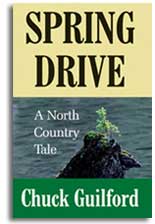Start Writing
There is no single best way to begin a writing project. What's best is what gets you going and builds momentum for the journey ahead. You may want to start right in on a draft or do some pre-planning.
Often, simply Choosing a Subject can be a challenge. You could start Freewriting to locate your subject and generate ideas. Or you might prefer to first gather information from Outside Sources, or to brainstorm using The Journalists' Questions.
Whether you're writing an informal essay, a technical report, or the next great American novel, the suggestions in Discovering What to Write will help you get going.
Write Strong Sentences
Effective sentences are vital to your writing. They are fundamental carriers and shapers of meaning—the pulse of style. If you want to work on your sentences, try the following Paradigm sections: Basic Sentence Concepts, Expanding the Basic Pattern, Six Problem Areas, Designing Effective Sentences.
For help with punctuation, try Basic Punctuation.
Analysis and Synthesis
Analysis refers to dividing a whole into parts. Synthesis refers to the process of constructing a whole from an assortment of pieces.
Read more ...Capitalization
Our language, unlike German and a few others, uses capital letters sparingly; and usually writers who have trouble with capitalization use too many rather than too few capital letters. Of the guidelines below, the two general ones are the most important. The others, while worth studying and learning, can be considered special conventions because their use is limited to a relatively small number of specialized situations.
Read more ...The Writing Context
Few people enjoy writing so much that they do it just for fun. Sometimes an impulse or insight may inspire us to sit down and write "just for the heck of it," without any sense of readers or purpose. Poems and journals often start like that. If you've kept a journal, you know such writing can be enjoyable and worthwhile. You can explore your experience and sift it for meaning. Yet even such expressive writing springs from a real life context that elicits language. All writing is situation bound. It's a response prompted by various needs, desires, and demands from both inside and outside.
Read more ...Following a Metaphor
A metaphor makes a comparison, and in doing so shapes our perception. If we say, "Time is a river," we're noting a certain similarity between the two. Yet we know they aren't identical. We may mean that time is fluid, has currents and eddies, empties into some vast ocean, but not that it's composed of water. If we say, "Time is a stone," we may mean it's silent, still, indifferent, but not that it's a mineral.
Read more ...Trying Out Ideas
By now, your project should be well underway. You've got a subject that genuinely interests you, and you've found a focus to guide your explorations. Now you need to begin systematically probing and exploring.
Read more ...Three Argumentative Appeals
While there's no infallible formula for winning over every reader in every circumstance, you should learn how and when to use three fundamental argumentative appeals. According to Aristotle, a person who wants to convince another may appeal to that person's reason (logos), ethics (ethos), or emotion (pathos).
Read more ...Stating Your Thesis
A thesis is a one sentence statement about your topic. It's an assertion about your topic, something you claim to be true. Notice that a topic alone makes no such claim; it merely defines an area to be covered.
Read more ...


